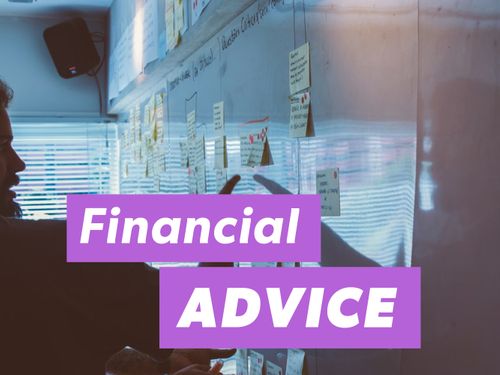In tough times, what’s the ONE bit of financial advice people wish they’d followed?
Nov 07, 2020 · 2 mins read
0
Share
“Pay yourself first”. “Don’t have credit cards”. “Invest long term”. We’ve all heard the advice, whether from finance gurus, our accountant, or Warren Buffett.
Save
Share
It’s all good, but what’s the one basic teaching of personal finance that most people wished they’d followed, but didn’t - and paid the consequences?
Save
Share
In 2020, virus lockdowns meant the economy evaporated, along with millions of jobs. The lucky ones stayed working, were furloughed, or allowed to stay on at reduced pay. For the rest, only government handouts kept them and their families from the food banks. Maybe you were one of them.
Save
Share
In previous times, people stored provisions and money for times of political crisis, natural disasters and crop failures. They didn’t expect governments to bail them out. Today we have the welfare state, so there’s less incentive to save. But it’s still foolish to believe that you shouldn’t.
Save
Share
Which brings us to the most overlooked, and most powerful financial advice: have an Emergency Fund the equivalent of 3-6 months of income.
Save
Share
The rule has been a bit mangled over the years. As Dayana Yochim from financial site The Motley Fool notes, the Fund should be based not on 3-6 months of income (as commonly stated) but of expenses. That makes the fund easier to amass, as not all our expenses are necessary.
Save
Share
Things you definitely need to cover in an emergency: 1. Roof over your head (rent or mortgage) 2. Food (groceries, not restaurant meals) 3. Transportation (car payments or train/bus fares) 4. Recurring bills 5. Medications 5. Insurance.
Save
Share
Everything else you can cut back on or stop. To calculate the size of your Emergency Fund, work out what your basic expenses are, and times it by 3, 6, or 12 if possible. Remember, you never know what’s around the corner, so be conservative.
Save
Share
With interest rates so low in the period 2010-2020, people weren’t motivated to have savings. Why would you, when you could earn more by putting money into the stock market? But stock market gains are only real when you sell. When everyone sells, you’re a lot poorer.
Save
Share
Bottom line: creating an Emergency Fund seems like a boring thing to do when you could spend the money on holidays or luxuries, or invest in the stock market. But in a real emergency, the people with cash are suddenly powerful. Be that person.
Save
Share
0
